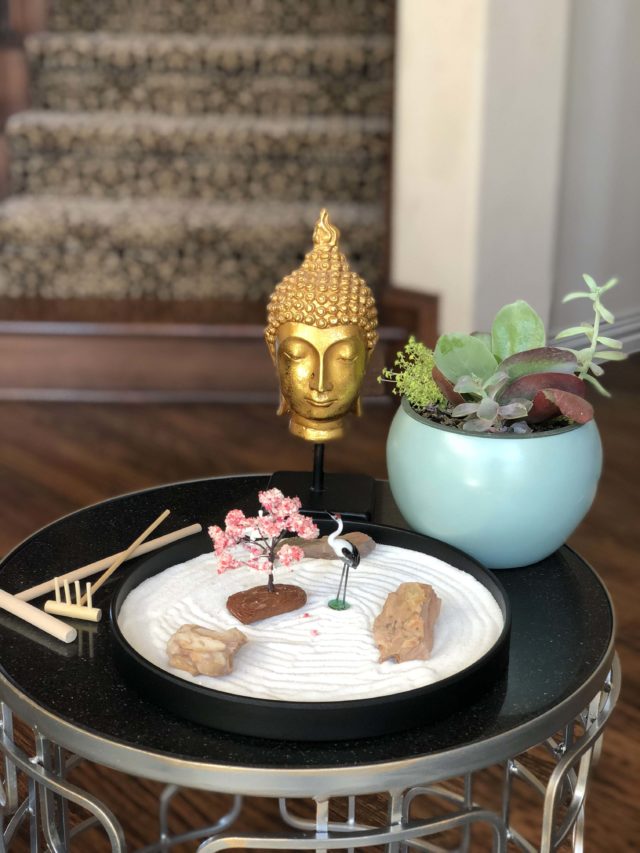Follow these simple ideas, tips to find some zen and stillness amid the chaos of everyday life. Carve out some time each morning or night to develop your own rituals, make mediation a daily practice, be grateful. Devote time and energy to find your zen, your peace. Think it, say it, and do it. Happy 2022!
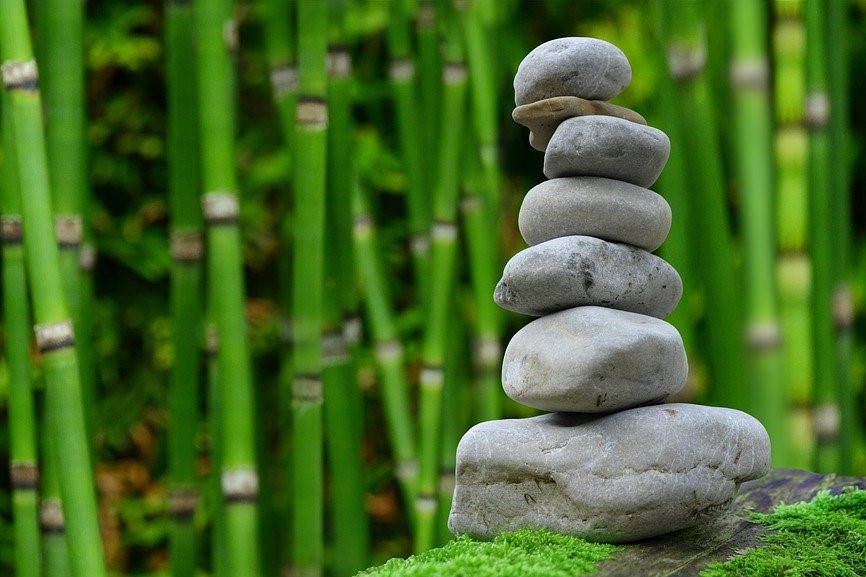
What is Zen? Zen is actually a Japanese term that is derived from the Chinese word chán (an abbreviation of chánnà, the Chinese translation of the Sanskrit word dhyāna) which means concentration or meditation. To “be” Zen, you are in a state of peace. Peace with your own thoughts and be self-aware of your place within the universe.
WHAT IS IN THIS POST
10 Tips To Find Zen Everyday
- Do one thing at a time.
- Do it slowly, deliberately and completely.
- Designate time for a walk in nature, everyday. Or at least once a week.
- Develop rituals.
- Close your eyes, sit still for 5 minutes a day. Take deep breaths. Meditate.
- Practice letting go in small ways. Stop worrying about social media.
- Be present. Celebrate the NOW everyday.
- Be thankful for what you have. Don’t ever compare yourself to others.
- Live Simply.
- Smile more!
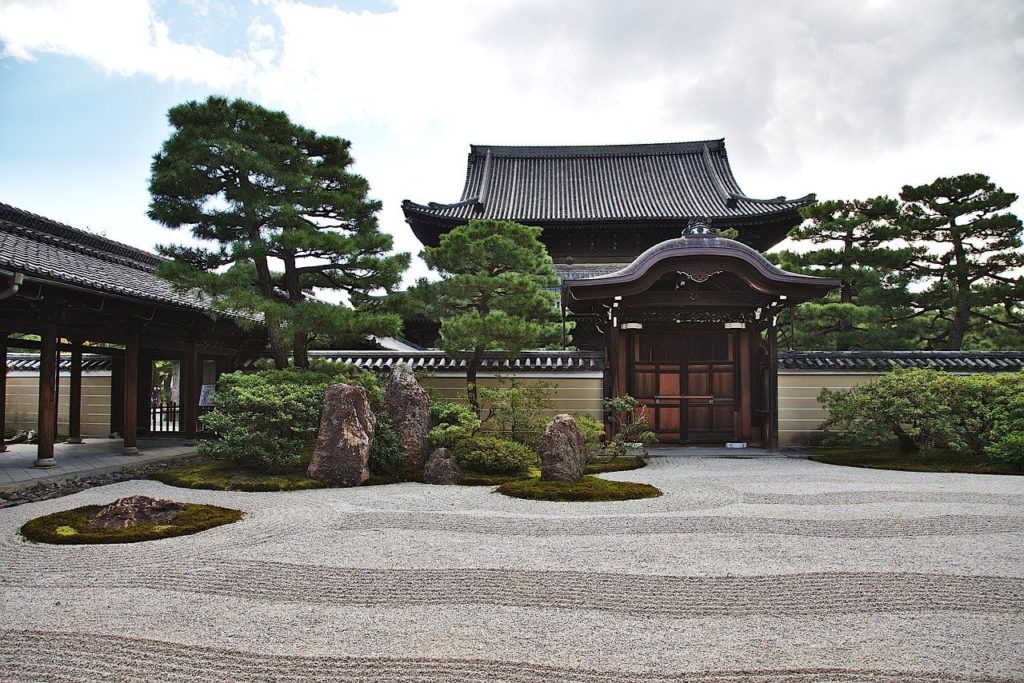
Whenever I’m in a new city, be it Seattle, San Diego, or Japan, I love to find if there is a Japanese Garden and make time for a peaceful stroll.
Make your day more Zen!
Realize that you’re not perfect. No one is. Never compare yourself to others. Accept who you are and be comfortable in your skin.
If you ever need to compare yourself with someone, compare yourself with yourself. How can you be better than what you were yesterday? How can you be nicer/better than what you were yesterday? You are the only person you can compare yourself with!
The Om or Aum symbol, a Hindu syllable is also common in Zen Buddhism and in other Eastern religions. This symbol represents the sacred sound that is believed to be the sound of the universe. Many ancient traditions associate this sound and its corresponding visual symbol as a core part of their meditation. Try chanting Om a few times a day, especially in the morning.
Zen gardens were a big part of Japanese culture. The main purpose of the gardens was to offer the monks a place to meditate. You can use a small tabletop zen garden to mindfully draw patterns and meditate. Focus on nothing but the lines. Start your practice. Make your day more Zen!
Elements in my Zen Garden & their symbolism
Ensō Circle, is a sacred symbol in Zen Buddhism which represents a moment of complete mindfulness – a time when the mind is free and the body can create easily. An elusive moment!
Pictured below is a small tabletop zen garden. The Japanese rock garden or “dry landscape” garden (or karesansui gardens), often called a zen garden, creates a miniature stylized landscape with carefully composed arrangements of rocks, water features, moss, pruned trees and bushes, and uses gravel, smooth pebbles, or sand that is raked carefully to represent ripples in water.
Apart from natural elements like grass, water ripples in the sand, small trees, and smooth stones, I like to use a few other elements in my little Zen Garden like Koi, crane, turtle, or my favorite little cat. Each has its own symbolism and meaning.
Koi are a type of carp, a common fish that can be found all over the world, and there are more than 100 varieties of koi created through breeding. What makes Koi so special is their coloring and lineage. Koi is a symbol of luck, prosperity, and good fortune, and also of perseverance in the face of adversity.
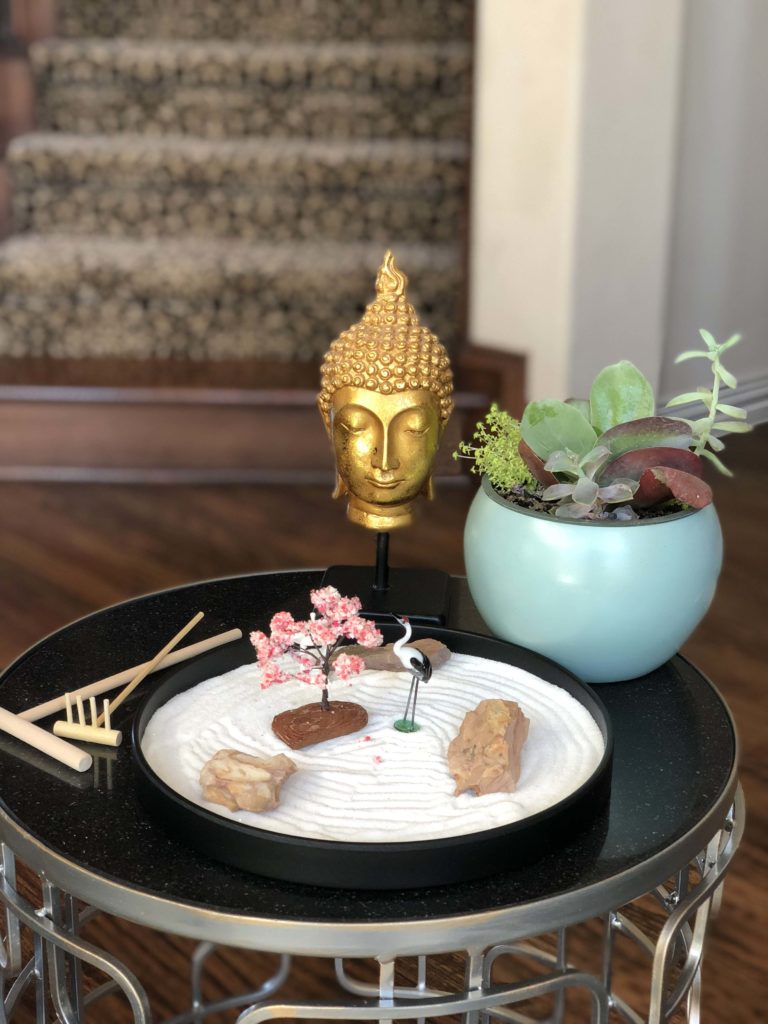
Crane or Tsuru is believed to represent good fortune and longevity in many Asian cultures. It is believed that the stork can live up to a very old age of 1,000 years. The crane is also closely associated with Japanese New Year and wedding ceremonies due to cranes being monogamous. The crane is often made in Japanese origami and woven into beautiful wedding kimonos. Cranes are a symbol of grace, wisdom, and luck.
The Japanese word for tortoise or turtle is kame, and the Japanese believe that they are a symbol of wisdom, luck, protection, and longevity. Longevity due to their long lifespan and slow movements.
The lucky cat is regularly represented in talismans across Japan. It is thought to bring luck, happiness, wealth, and prosperity. These cats (Maneki Neko or beckoning cats) are identified through their raised right paw. The one I have is more of a happy cat chilling in the zen garden.
Frogs or Kaeru are another Japanese spiritual symbol. They are often used in poetry and art, and are sometimes carried by travelers to make sure they return home safely from their journeys. The word frog in Japanese means ‘return’, which is mainly why frog is considered a Japanese lucky animal and seen as good fortune in things returning. I hope things return to normal in 2022!
Deer are considered to be sacred messengers of God and we loved seeing them at Nara Park. Placing it on the sand helps me not only remember that trip but also find zen every day among all the noise and chaos.
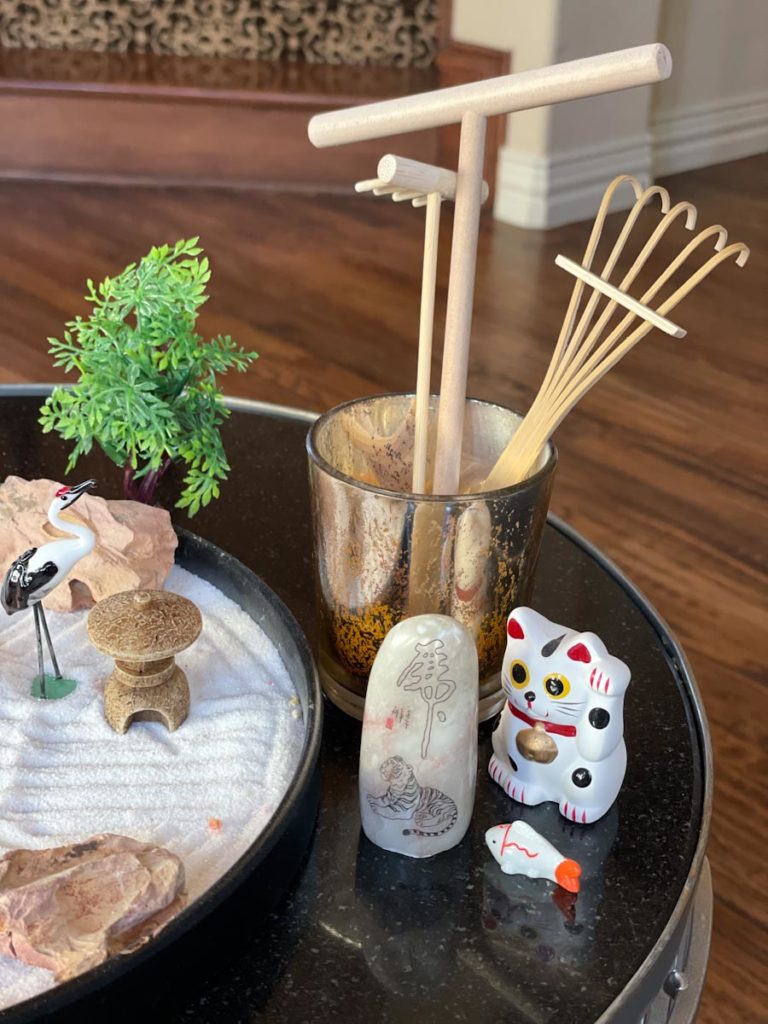
Lion Dog statues or Komainu are usually found in front of Shinto shrines. They are there to protect the shrine. Open mouth means beginning and closed mouth means ending. Komainu symbolizes prosperity, success, and guardianship.
Dragon or Tatsu is a mythical creature but an important part of Japanese culture. They are a symbol of great power, wisdom, and success, and is said to bring strength, luck, and fortune. The Japanese dragon is very similar to the Chinese dragon but is more serpentine in its shape and structure.
Sakura flowers or Cherry blossoms signify that all the beautiful things in life are temporary (mono no aware).
The small Bonsai plant symbolizes harmony and balance.
Stone lanterns called Doro are a present to buddha. They are used for decoration in gardens and are usually empty.
Red/orange Gate called “tori” in Japanese symbolizes the separation between real life and spiritual life. It is said that should not walk in the middle as it is reserved for the gods. I bought a small tori gate after hiking through the thousand Tori gates at Fushimi the Inari Shrine in Kyoto and sometimes use it in my tabletop Zen Garden.
I find that these miniature Zen Gardens are a fantastic way to unwind during times of stress. Over time, you will focus on the lines and the breathing. It will help bring a sense of calm and tranquility.
Set a clear intention to “find zen” in your everyday life. Think it, say it, and do it. See more tips and quotes to live life well and love unconditionally.
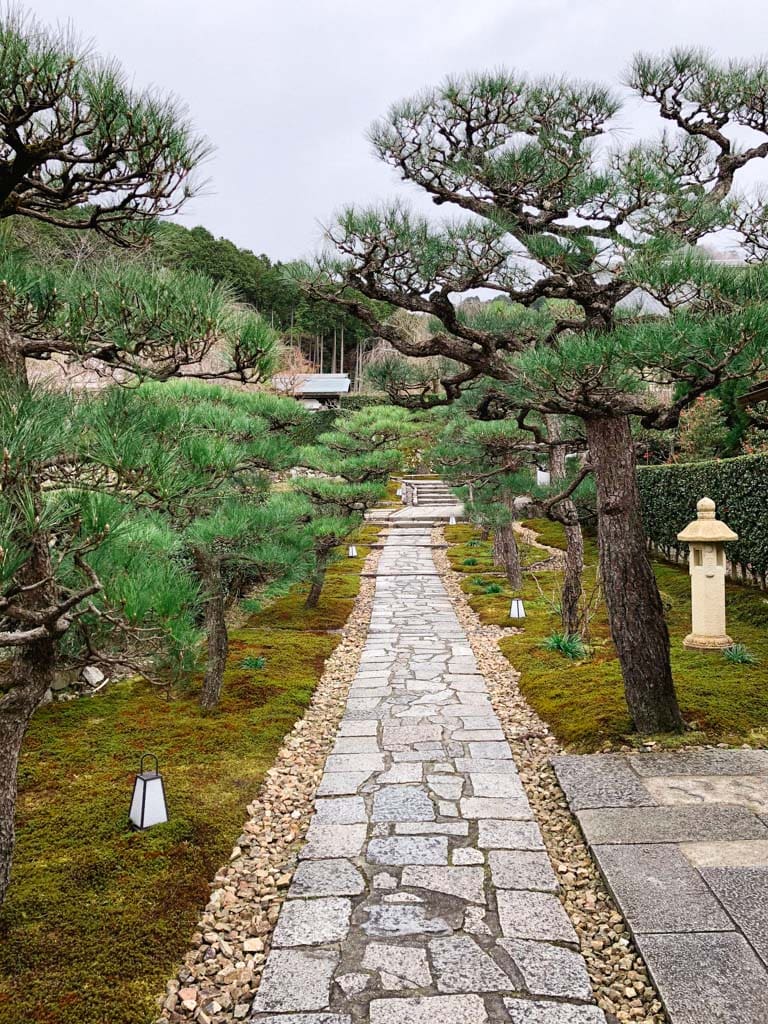
Hope these 10 ideas help find some zen and stillness amid the chaos of everyday life.
Note: This post may contain affiliate links, partnership or sponsored content. If you purchase an item via one of these links, we may receive a small commission at no extra charge to you. But as always images and opinions are our own. For more information on our affiliates and privacy policy at Outside Suburbia see here.
CONNECT WITH US

